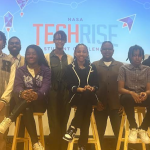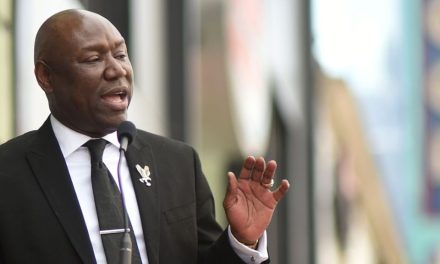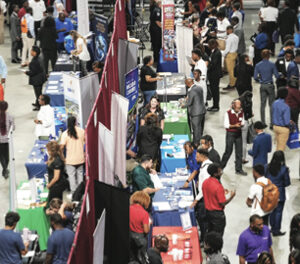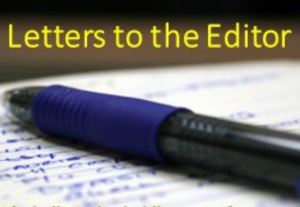Phillips Academy IB students will receive $1,500 to build out their experiments, a 3D-printed flight box in which to build it. (Sym Posey Photo, The Birmingham Times)
” data-medium-file=”https://www.birminghamtimes.com/wp-content/uploads/2024/01/Phillips_STEM-1-300×203.png” data-large-file=”https://www.birminghamtimes.com/wp-content/uploads/2024/01/Phillips_STEM-1-1024×694.png” />
By Sym Posey
The Birmingham Times
A group of sixth and seventh graders at John Herbert Phillips Academy IB School last week became the first Birmingham City School to win a national NASA STEM competition.
TechRise, in its third year, is a Science, Technology, Engineering, and Math challenge for 6th – 12th graders that offers students the opportunity to design and test their own innovative solutions for space exploration. A total of 60 winning teams from across the country were selected, including Ramsay, the only school in Alabama.
This year’s challenge was to create a science or technology experiment that could be tested on either a NASA-sponsored high-altitude balloon flight or rocket-powered lander. The students’ proposal, Terrestrial Magnetic Field, was designed for a high-altitude balloon. Their goal is to understand how the composition of the stratosphere has changed over the past 10 years, and if these changes have impacted agricultural production.
The students will work through the remainder of the school year building out their experiment with the support of professional engineers in preparation for a NASA-sponsored flight test this summer on May 17.
The winning teams will each receive $1,500 to build out their experiments, a 3D-printed flight box in which to build it and technical support from Future Engineers throughout the process.
The Phillips Academy students — Aleigha Riggs, Journi Wilson, Alana Simien, Nina Hughes, Leigh Thomas, Luz Garcia, Carter Sanders, and Thompson Aguillard — were led by teacher Shawn Hurley II, and were the first scholars out of Birmingham to compete and win in the STEM challenge.
“It’s been awesome for these young scholars to put in the work to accomplish this not just for themselves but for the school as well,” said Hurley. “Being one of many schools for this particular project is not just big for our city and our community but also big for our state as well.
Aleigh Riggs, 13, said, she looks forward to the next phase of the project. “I want to go into this field. Because of the competition, I get to work with NASA engineers and scientist,” she said. “Maybe I can put myself out there so I can stand out and get recommendations for schools I would like to attend.”










